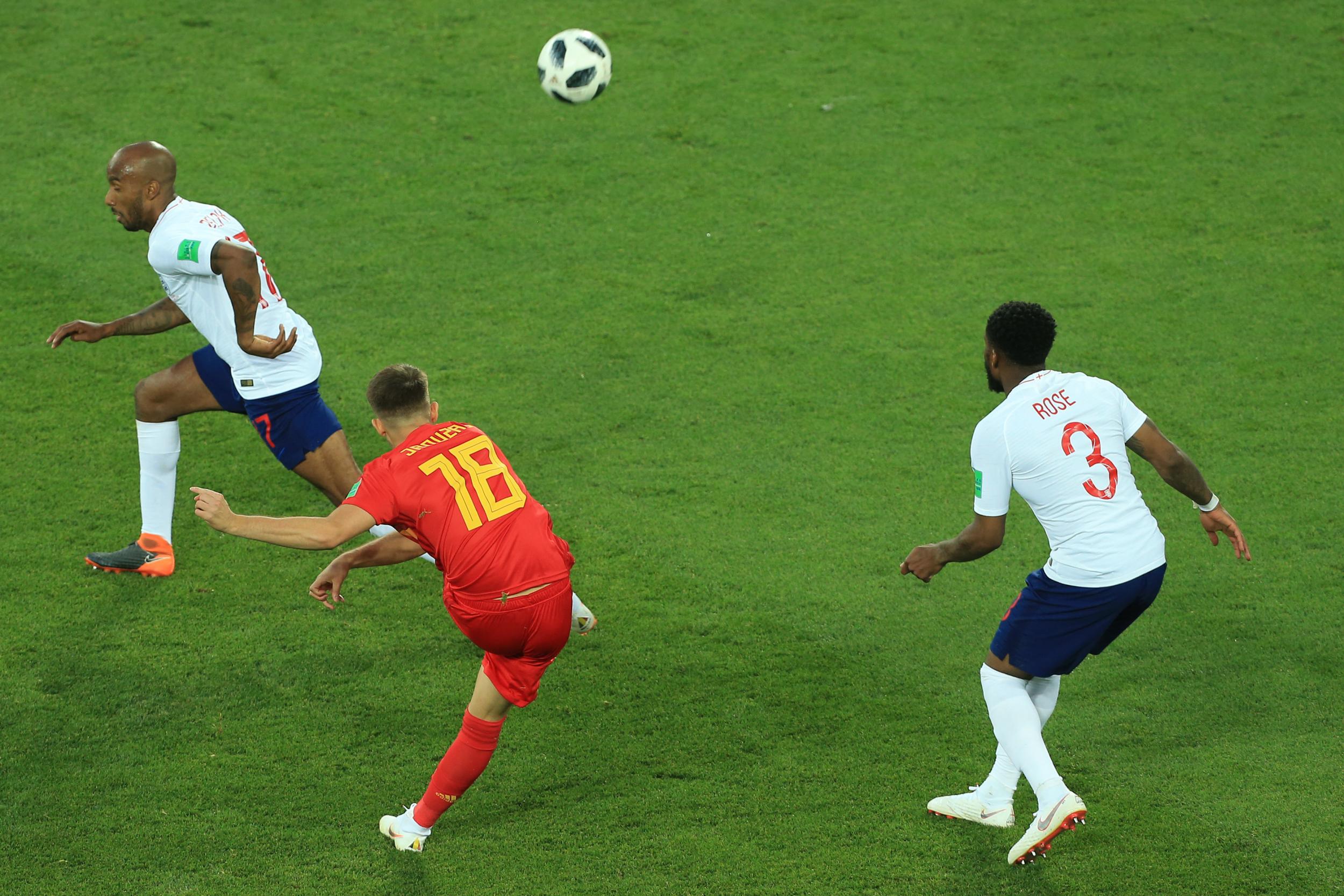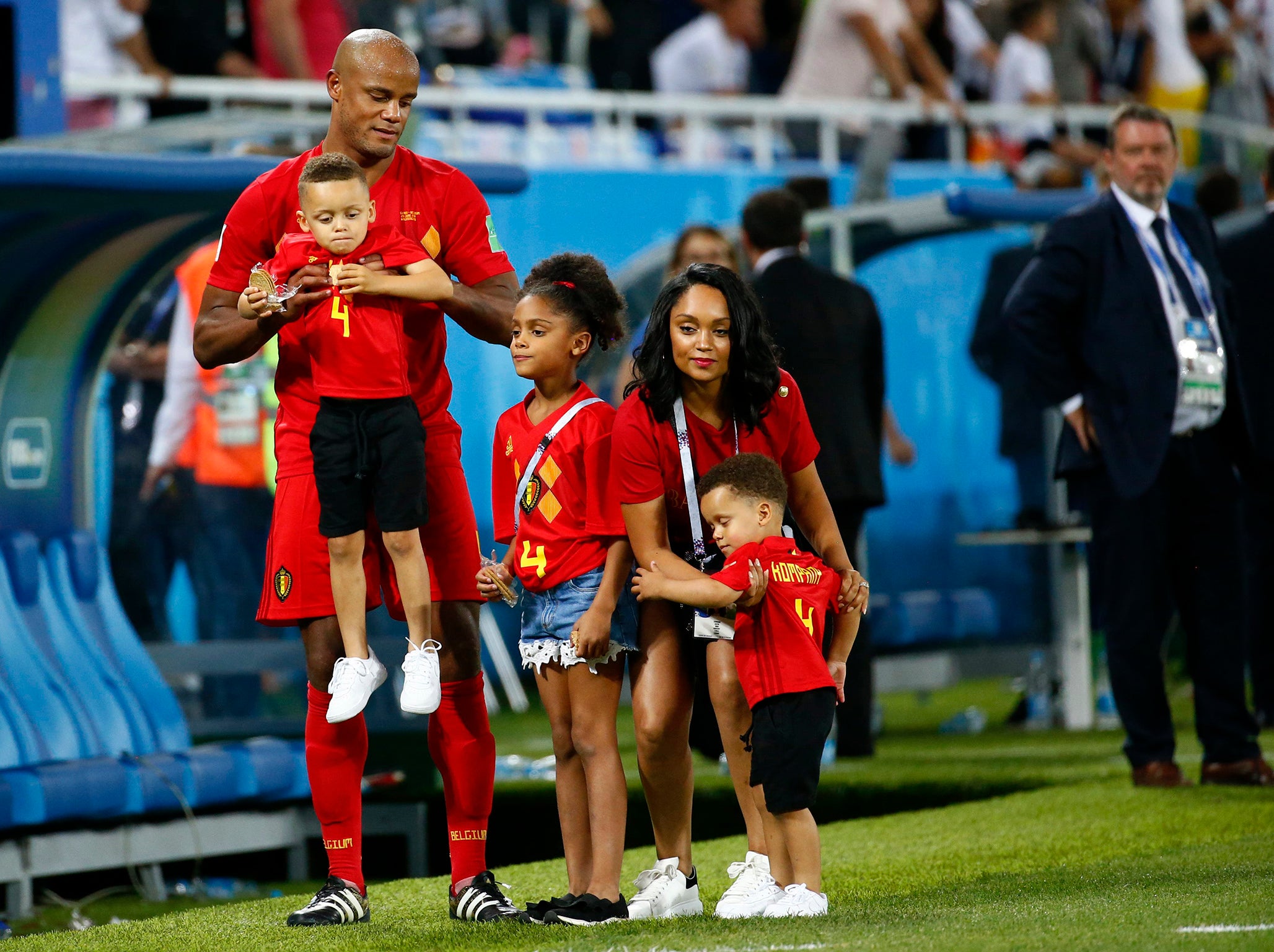Belgium are out to show there is no easy way to win a World Cup after beating England to top Group G
As the Belgium players filed out to begin the journey that would take them first to their base outside Moscow and then to Rostov to face Japan, there was a realisation that you cannot second-guess a World Cup.
They had beaten England and condemned themselves to the possibility of a quarter-final against Brazil. However, more importantly, in the eyes of Thomas Vermaelen - one of which looked severely bruised - they could have done nothing else but win.
“It is very difficult to step on to a pitch and plan to lose,” said the defender, whose English wife he met while at Arsenal, Polly, was unequivocally supporting Belgium.
“You are in World Cup, you can’t think about who you might play in two games’ time. From the group stages, you can’t think about who you might play in a quarter-final or a semi-final. If you lose, you lose momentum and you lose focus. Then, it doesn’t matter who you play, where you play or how many days’ rest you have had.”
It was hard not to think that here in this strange, cut off part of Russia, with all the ghostly shadows of its pre-war German past, England had lost the momentum that had been with them since Gareth Southgate took over.
You cannot tiptoe your way to the World Cup. The last time England and Belgium had met at a World Cup, in Bologna in 1990, it was a cliff-edge contest in which each team knew a single mistake could send them home.
The tournament was won by West Germany, whose route to the trophy included contests against Yugoslavia, Colombia, the Netherlands, Czechoslovakia, the game against England that inspired a book, a play and a film, topped off with an encounter with the world champions, Argentina. They were stretched from the very beginning and the Germans remained taut and focused throughout the entire tournament.
“Roberto Martinez is at his best when he is talking to players, telling them to stay calm but he knows that, if you want to win a World Cup, you have to keep winning,” said Vermaelen. When he was manager of Wigan, Martinez beat Manchester City in an FA Cup final. The gap between the two teams was surely less than between Belgium and Brazil now.

The year of Martinez’s greatest triumph, 2013, was the year Adnan Januzaj made his debut for Manchester United. It was a bright, autumn afternoon at Old Trafford against Crystal Palace and the first doubts had begun to be raised as to whether David Moyes was indeed the ‘Chosen One’, the rightful heir to Sir Alex Ferguson’s throne.
Then, he put on Januzaj, wearing the number 44. Every time he touched the ball, a ripple of electricity jolted through the stadium. His beautiful, curled shot that decided the game against England was one of the few sparks of the night.
In between, too much had gone wrong. Moyes’s successor, Louis van Gaal, had lost patience. At Borussia Dortmund, he had been criticised for his attitude and his reluctance to learn German. A reunion with Moyes at Sunderland had produced one goal and relegation.
“That is where his talent lies, scoring goals one against one,” said Vermaelen. “We have known him for a long time because he was in the World Cup squad in 2014 but now he has this feeling that he deserves to be there.”
It has been quite a World Cup for the children of Kosovan refugees. In this same stadium in Kaliningrad, Granit Xhaka and Xherdan Shaqiri had scored emotional goals against Serbia. Now it was the turn of Januzaj whose parents had left Kosovo, bound not for Switzerland but Brussels.
Perhaps it was the influence of Thierry Henry, who is working with this Belgium side alongside Martinez, that had given Januzaj the confidence to attack. “I know that there are some big players in this squad,” he said. “But you know your moment will come and you have to stay concentrated for it. That was my moment.
“After the game, Thierry Henry came over to me and said that goal was the result of all the hard work we had put in together. He told me that if I play with my true quality I can be among the best.”
After the final whistle, Vincent Kompany could be seen playing with his children. There are a lot of similarities between England and Belgium; intelligent footballers managed by young, intelligent managers.

If England’s defeat to Iceland in Euro 2016 was traumatic so was Belgium’s downfall to Wales in the quarter-finals. The feeling after Thursday night by the Baltic was that Belgium might have the deeper squad.
“So many of us play in England and we wanted to show the English we have a very good team,” said Marouane Fellaini, who against the odds has had a rather longer spell at Manchester United than Januzaj. “This is a great generation reaching its peak but the problem we have now is the travelling. We have to prepare and recuperate as best we can. But we know this much: If we win, we can rest. If we lose, we can go home.”
Join our commenting forum
Join thought-provoking conversations, follow other Independent readers and see their replies
Comments
Bookmark popover
Removed from bookmarks